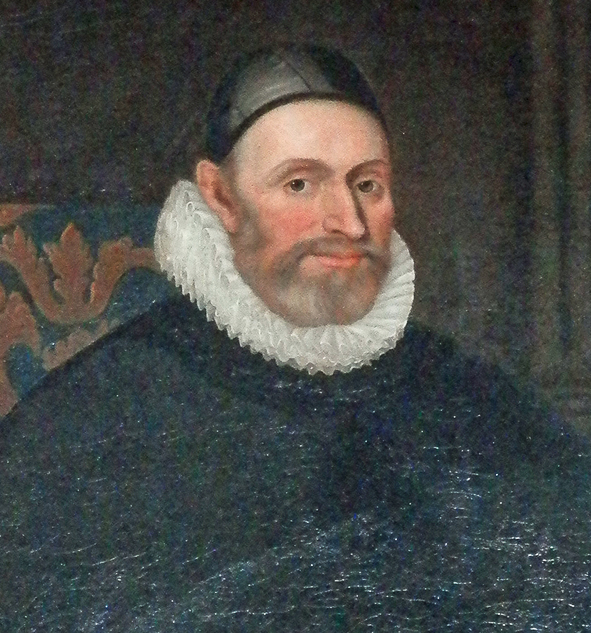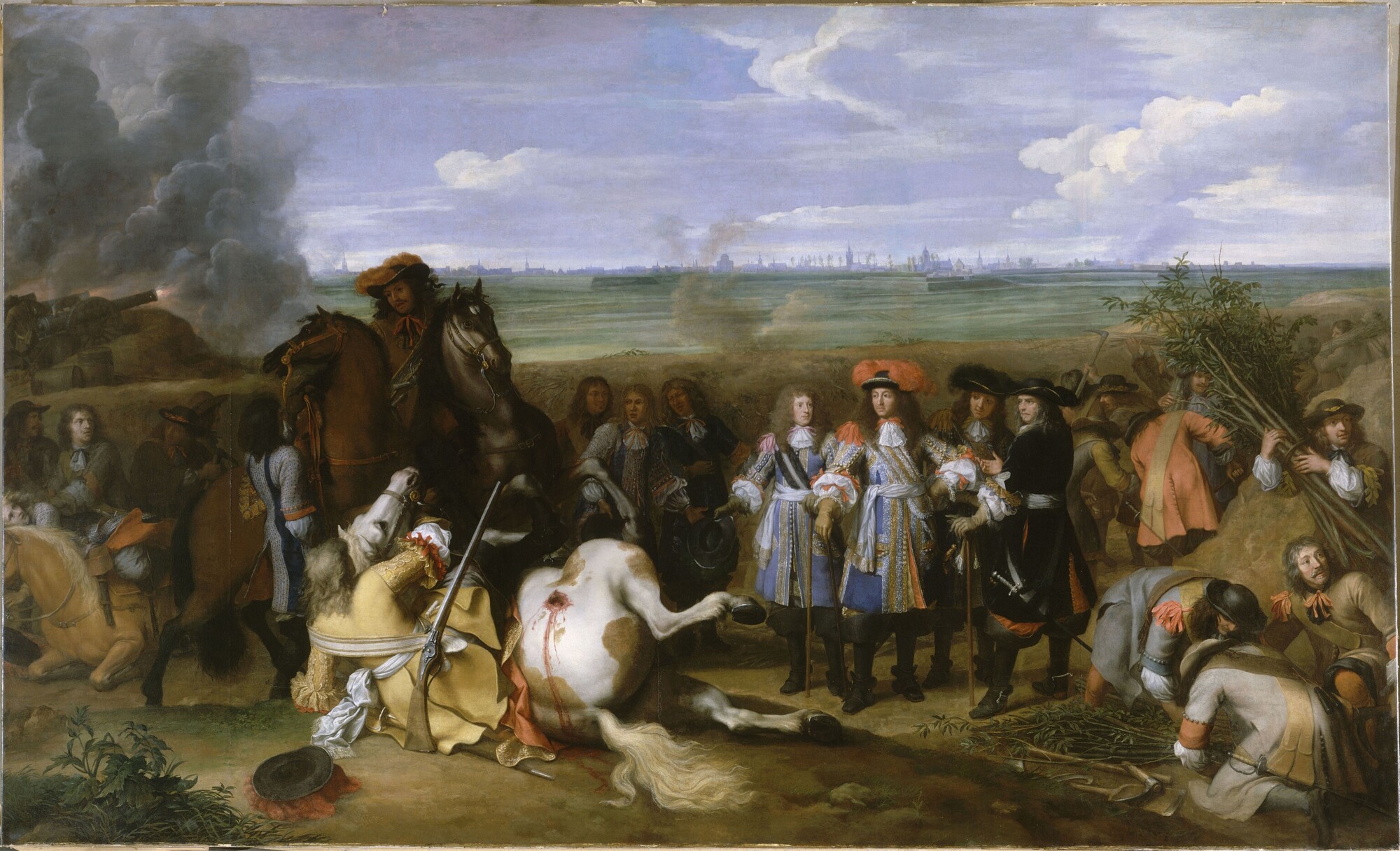|
Jean Guild
Jean Guild became Jean Anderson (1573 – 1667) was a Scottish philanthropist in Aberdeenshire. She created an Aberdeen charitable trust that cared for orphans. Life Guild was born in 1573. She had two sisters and her brother was William Guild and her parents were Marjorie (born Donaldson) and Matthew Guild. Her father was a wealthy armourer of Aberdeen, who was the Deacon of the Guild of Hammermen. Her husband She married David Anderson who was a talented mechanic and engineer. He was of such renown that he was known as "Davie Do a'thing". One of the stories told of his cleverness was his success at removing a large rock that was blocking the entrance to the harbour in Aberdeen. Her husband designed and built a large raft constructed from casks. At low tide he attached the raft to the rock and as the tide came in it lifted the raft and the rock. At this point the raft and rock were moved away. Her husband died on 9 October 1629 leaving her a rich widow, but with five daughter ... [...More Info...] [...Related Items...] OR: [Wikipedia] [Google] [Baidu] |
Kingdom Of Scotland
The Kingdom of Scotland (; , ) was a sovereign state in northwest Europe traditionally said to have been founded in 843. Its territories expanded and shrank, but it came to occupy the northern third of the island of Great Britain, sharing a land border to the south with England. It suffered many invasions by the English, but under Robert the Bruce it fought a successful War of Independence and remained an independent state throughout the late Middle Ages. Following the annexation of the Hebrides and the Northern Isles from Norway in 1266 and 1472 respectively, and the final capture of the Royal Burgh of Berwick by England in 1482, the territory of the Kingdom of Scotland corresponded to that of modern-day Scotland, bounded by the North Sea to the east, the Atlantic Ocean to the north and west, and the North Channel and Irish Sea to the southwest. In 1603, James VI of Scotland became King of England, joining Scotland with England in a personal union. In 1707, during the reign ... [...More Info...] [...Related Items...] OR: [Wikipedia] [Google] [Baidu] |
Aberdeen Charitable Trusts
Across the United Kingdom, many services such as hospitals and schools depend on private or corporate donation. In the sixteenth century,(before 1560 in Scotland) the Church and the nobility were the only source of such support. By the nineteenth century, government and local authorities had taken over this responsibility. Poor Laws in the nineteenth century provided a more secure form of help for the poor and gradually the use of mortifications declined. Sometimes a hospital, Bedehouse, or care home was given money directly to further its purposes. The City of Aberdeen like many across Scotland, and in the rest of the United Kingdom, administers charitable trusts to benefit its residents (approximately £8m in 2013). Some of these date back to the fourteenth and fifteenth centuries. In general these mortifications were endowed to benefit Guildry members, the poor, medical, educational, cultural, arts and heritage purposes individuals and groups. Recently the City Council has re ... [...More Info...] [...Related Items...] OR: [Wikipedia] [Google] [Baidu] |
William Guild
William Guild (1586–1657) was a Scottish minister, academic and theological writer. Life He was the second son of Marjorie (born Donaldson) and Matthew Guild, a wealthy armourer and hammerman of Aberdeen, and Deacon of the Guild of Hammermen and his wife, Marion Robertson. William had three sisters including the philanthropist Jean Guild who was baptised in 1573. He was born in Aberdeen, and was educated at Marischal College graduating MA around 1602. He received licence to preach as a Church of Scotland minister by the Presbytery of Aberdeen in May 1605, and in 1608 was ordained minister of the parish of King Edward in Aberdeenshire. Two years later his wealth was increased by his marriage with Katherine Rolland or Rowen of Disblair, Aberdeenshire. In 1617, during the visit of James I to Scotland, Guild was in Edinburgh, and was a member of the assembly which met in the music school of that city, and protested for the liberties of the kirk; the temper of the king was th ... [...More Info...] [...Related Items...] OR: [Wikipedia] [Google] [Baidu] |
Aberdeen
Aberdeen (; sco, Aiberdeen ; gd, Obar Dheathain ; la, Aberdonia) is a city in North East Scotland, and is the third most populous city in the country. Aberdeen is one of Scotland's 32 local government council areas (as Aberdeen City), and has a population estimate of for the city of Aberdeen, and for the local council area making it the United Kingdom's 39th most populous built-up area. The city is northeast of Edinburgh and north of London, and is the northernmost major city in the United Kingdom. Aberdeen has a long, sandy coastline and features an oceanic climate, with cool summers and mild, rainy winters. During the mid-18th to mid-20th centuries, Aberdeen's buildings incorporated locally quarried grey granite, which may sparkle like silver because of its high mica content. Since the discovery of North Sea oil in 1969, Aberdeen has been known as the offshore oil capital of Europe. Based upon the discovery of prehistoric villages around the mouths of the rivers ... [...More Info...] [...Related Items...] OR: [Wikipedia] [Google] [Baidu] |
Davie Do A Thing David Anderson Of Aberdeen
Davie is a surname and a form of the masculine given name David. It can refer to: Surname * Alan Davie (1920-2014), Scottish painter and musician * Alexander Edmund Batson Davie (1847-1889), Canadian politician and eighth Premier of British Columbia * Art Davie, American businessman * Bert Davie (1899-1979), Australian cricketer and Australian rules footballer * Bob Davie (American football) (born 1954), American college football head coach, former player and sports commentator * Bob Davie (ice hockey) (1912–1990), Canadian ice hockey player * Daniel DeWitt Tompkins Davie (1816–1877), American photographer * Donald Davie (1922–1995), English poet and literary critic * Earl Davie (born 1927), American biochemist * Elspeth Davie (1918-1995), Scottish novelist, short story writer, painter and art teacher, wife of George Elder Davie * Erin Davie, American actress and singer * Eugenie Mary Ladenburg Davie (1895-1975), American political activist * George Elder Davie (1912–200 ... [...More Info...] [...Related Items...] OR: [Wikipedia] [Google] [Baidu] |
Kirk Of St Nicholas
The Kirk of St Nicholas is a historic church located in the city centre of Aberdeen, Scotland. Up until the dissolution of the congregation on 31 December 2020, it was known as the ''"Kirk of St Nicholas Uniting"''. It is also known as ''"The Mither Kirk"'' (mother church) of the city. As of 1 January 2021, the building falls under the care and maintenance of the General Trustees of the Church of Scotland. The church has a dark oak interior. History The earliest mention of a church on the site of the present Kirk can be found in a Papal document of 1151. Given Aberdeen's proximity to the sea, St Nicholas was chosen as the patron saint of Aberdeen, as a miracle attributed to him was the rescue of some sailors in a storm. The Kirk was enlarged in the 15th century. St Nicholas and St Mary's, Dundee, were probably the largest parish churches in medieval Scotland. This work was dedicated by Bishop Elphinstone in 1498. The 500th anniversary of the dedication of the enlarged churc ... [...More Info...] [...Related Items...] OR: [Wikipedia] [Google] [Baidu] |
1573 Births
Year 1573 ( MDLXXIII) was a common year starting on Thursday (link will display the full calendar) of the Julian calendar. Events January–June * January 25 – Battle of Mikatagahara in Japan: Takeda Shingen defeats Tokugawa Ieyasu. * January 28 ** Articles of the Warsaw Confederation are signed, sanctioning religious freedom in Poland. ** The Croatian–Slovene Peasant Revolt breaks out against the oppressive nobility; the revolt is quelled violently by February 15 and Matija Gubec, leader of the rebellion, publicly executed in Zagreb. * February–March – The siege of Noda Castle takes place in Japan. * March 7 – The Ottoman–Venetian War (1570–1573) is ended by a peace treaty, confirming the transfer of control of Cyprus from the Republic of Venice to the Ottoman Empire, and also confirming Turkish occupation of the more fertile region of Dalmatia. * May 11–May 16, 16 – The Henry III of France, Duke of Anjou is elected to the ... [...More Info...] [...Related Items...] OR: [Wikipedia] [Google] [Baidu] |
1667 Deaths
Events January–March * January 11 – Aurangzeb, monarch of the Mughal Empire, orders the removal of Rao Karan Singh as Maharaja of the Bikaner State (part of the modern-day Rajasthan state of India) because of Karan's dereliction of duty in battle. * January 19 – The town of Anzonico in Switzerland is destroyed by an avalanche. * January 27 – The 2,000 seat Opernhaus am Taschenberg, a theater in Dresden (capital of the Electorate of Saxony) opens with its first production, Pietro Ziani's opera ''Il teseo''. * February 5 – In the Second Anglo-Dutch War, the English Royal Navy warship HMS ''Saint Patrick'' is captured less than nine months after being launched, when it fights a battle off the coast of England and North Foreland, Kent. Captain Robert Saunders and 8 of his crew are killed while fighting the Dutch ships ''Delft'' and ''Shakerlo''. The Dutch Navy renames the ship the ''Zwanenburg''. * February 6 (January 27 O.S.) – The T ... [...More Info...] [...Related Items...] OR: [Wikipedia] [Google] [Baidu] |
People From Aberdeen
A person ( : people) is a being that has certain capacities or attributes such as reason, morality, consciousness or self-consciousness, and being a part of a culturally established form of social relations such as kinship, ownership of property, or legal responsibility. The defining features of personhood and, consequently, what makes a person count as a person, differ widely among cultures and contexts. In addition to the question of personhood, of what makes a being count as a person to begin with, there are further questions about personal identity and self: both about what makes any particular person that particular person instead of another, and about what makes a person at one time the same person as they were or will be at another time despite any intervening changes. The plural form "people" is often used to refer to an entire nation or ethnic group (as in "a people"), and this was the original meaning of the word; it subsequently acquired its use as a plural form of per ... [...More Info...] [...Related Items...] OR: [Wikipedia] [Google] [Baidu] |







_1938.jpg)